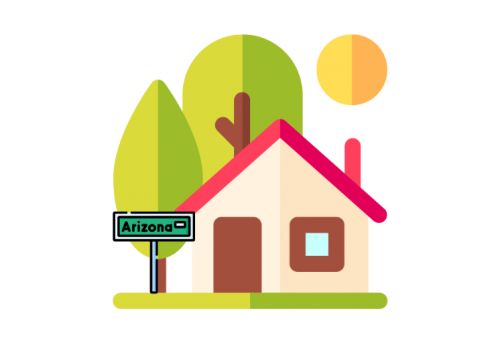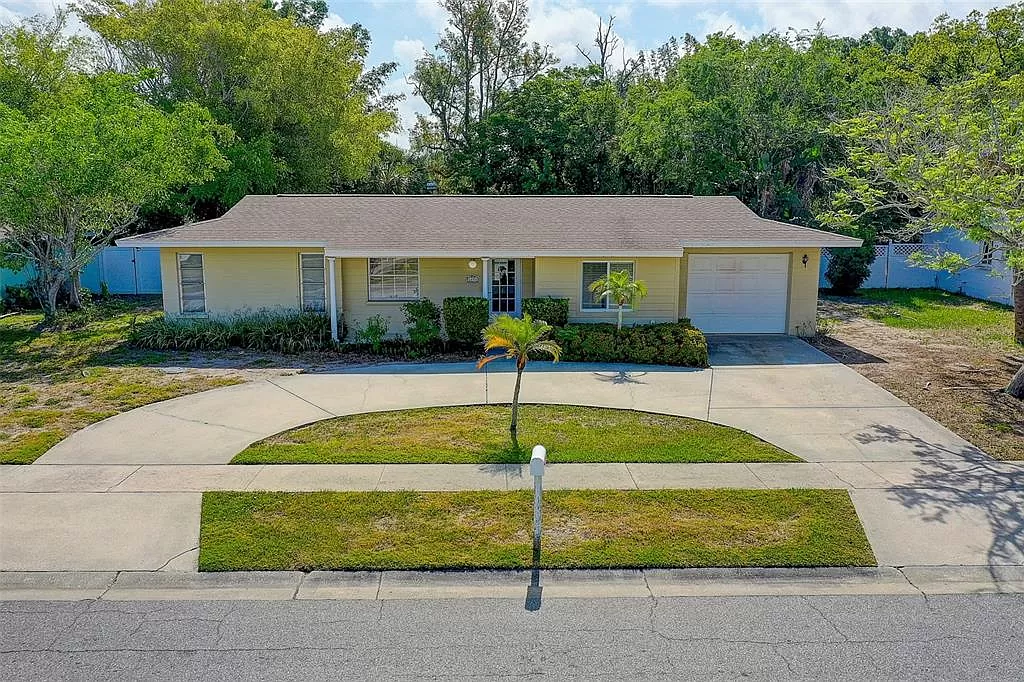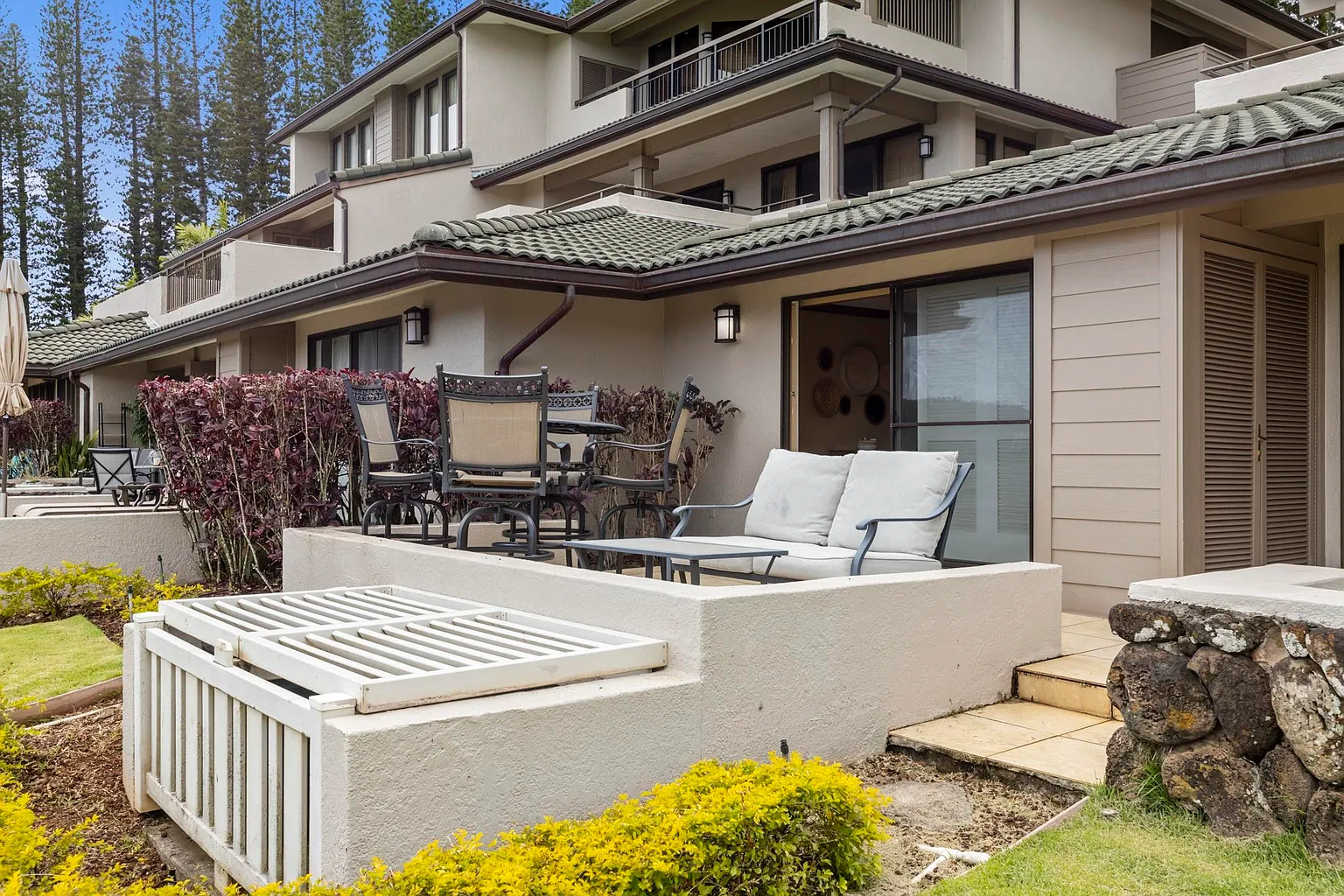Editorial Integrity
Making informed real estate decisions starts with having the right knowledge. At HomeAbroad, we offer US mortgage products for foreign nationals & investors and have a network of 500+ expert HomeAbroad real estate agents to provide the expertise you need. Our content is written by licensed mortgage experts and seasoned real estate agents who share insights from their experience, helping thousands like you. Our strict editorial process ensures you receive reliable and accurate information.
Buying a house in Arizona is one of the best financial decisions to make in the present times. A report by the Arizona Association of Realtors indicates that the number of home listings in the state has increased by 14.6 percent in just a year. Also, Arizona’s housing market overview report for June 2022 shows a price drop of more than 36 percent in home values.
In addition to these reports, Arizona has also been ranked the third-most moved-in state in the USA, as per a State-to-State migration flows report of the U.S. Census Bureau. So, if you are a resident of the USA hoping to relocate to a better place or a foreigner planning to buy a house in Arizona for investment or stay, now is the right time to do that!
Table of Contents
How to Buy a House in Arizona?
The process of buying a house in Arizona is not very different from the process followed in other states of the U.S. However, there are a few unique things that you must keep in mind while purchasing a property in Arizona. Here is a step-by-step guide on how to buy a house in Arizona:
Step 1: Decide Where to Buy a House in Arizona
If you are not bound to a place by job restrictions or other requirements, comparing housing prices and the cost of living of different cities in the state is advisable. It will help you slot the best deals within your budget and requirements.
For example, the median home price in Phoenix is around $434,879, whereas Tucson’s median home price is approximately $331,027, which is lower than the average statewide median. And both are great places for relocation and investment.
Step 2: Research Mortgage Options
The next step is to find a mortgage that suits your budget and needs. Many types of mortgages are available in the market, so it’s essential to research and speak to a real estate agent about the best deal for you. Some of the most popular mortgage types are:
- Fixed interest rate mortgages
- Adjustable rate mortgages
- V.A. loans
- FHA loans
Fixed Rate Mortgage
In this type of mortgage, the interest rate is locked in for the entire loan term, usually 30 years. This means that your monthly payments will remain the same throughout the life of the loan, making it easier to budget.
Adjustable Rate Mortgage
An adjustable-rate mortgage (ARM) has an interest rate that changes periodically, typically concerning an index. It, therefore, may go up or down over the life of the loan. However, the initial interest rate on an ARM is usually lower than that of a fixed-rate mortgage, making it a popular choice among homebuyers, particularly those who expect to move or refinance before the initial loan term.
V.A. Loan
A VA loan is a mortgage loan available through the U.S. Department of Veterans Affairs (V.A.) to eligible veterans, service members, and surviving spouses. V.A. loans are made by private lenders and guaranteed by the V.A. This loan provides veterans with several benefits, such as no down payment, no monthly mortgage insurance premiums, and more lenient credit and income requirements.
FHA Mortgage
An FHA loan is a mortgage loan insured by the Federal Housing Administration (FHA). The FHA is a federal agency that provides insurance to lenders if a borrower defaults on their loan. This type of loan is popular among first-time homebuyers because it has more lenient credit and down payment requirements than a conventional loan.
Step 3: Get Pre-Approved for a Mortgage
The next step is to get pre-approved for a mortgage. It means that you have been approved for a loan by a lender and are ready to start the process of buying a house. Getting pre-approved is important because it will give you an idea of how much money you can borrow and what your monthly payments will be. It will also show sellers that you are a serious buyer.
To get pre-approved, you must fill out a mortgage application and provide the lender with information about your income, bank statements, debts, and assets. The lender will then run a credit check and verify your employment history. Once approved, the lender will give you a pre-approval letter that you can use when making an offer on the house.
Step 4: Compare the Ways to Get a Mortgage
There are a few ways that you can get a mortgage:
1. You can go through a bank or credit union.
2. You can use an online mortgage lender.
3. You can use a mortgage broker.
4. You can get a government-backed loan, such as an FHA loan or a V.A. loan.
Each option has its own set of pros and cons, so it’s important to compare them before choosing one.
Banks and Credit Unions
One of the advantages of going through a bank or credit union is that you will likely get a lower interest rate than you would with an online mortgage lender. Banks and credit unions also have a personal relationship with their customers, which can streamline the process of getting a mortgage. However, one of the disadvantages of using a bank or credit union is that they may not offer as many loan options as an online lender.
Mortgage Broker
A mortgage broker is a middleman who works with multiple lenders to find the best loan for you. The advantage of using a broker is that they can compare rates and terms from multiple lenders to find the one that’s best for you. The disadvantage of using a broker is that they may charge an appraisal fee for their services.
Online Mortgage Lender
One of the advantages of using an online mortgage lender is that they typically have lower interest rates than banks and credit unions. Another advantage is that you can compare rates and terms from multiple lenders all in one place.
Government-Backed Loans
One of the advantages of using a government-backed loan is that you may be able to get a lower interest rate. In addition, these loans often have more lenient credit and down payment requirements than conventional loans. The disadvantage of using a government-backed loan is that you will likely have to pay for mortgage insurance, which can add to your monthly costs.
HomeAbroad specializes in investment property loans, offering the best loan terms with fast approvals. Get your rate quote today!

Pre-qualify for a US mortgage as an international buyer.
No US credit history needed.
Step 5: Arrange Down Payment
The next step is to arrange for the down payment of the house you plan on buying.
- For a conventional loan, you will need to save at least 3-5% of the house’s value as the down payment, plus closing costs.
- The minimum down payment is 3.5% if you want an FHA loan.
- If your down payment is less than 20 percent of the property’s value, you will have to get Private Mortgage Insurance or PMI. The premium for this insurance can be added to your monthly mortgage payment.
- However, if you have a good credit report, you might get away with a lower down payment. If you don’t have a good credit report or employment history, you might be required to put down a higher percentage as the down payment.
Step 6: Find a Real Estate Agent
Now that you have been pre-approved for a mortgage, it’s time to find a real estate agent. A real estate agent will help you find homes that fit your budget and needs. They will also be able to provide you with information about the different neighborhoods in Arizona.
Step 7: Home Inspection
It is one of the most important steps while buying a property. You can ask your real estate agent, a friend, or a family member who is experienced in this field to inspect for you. A home inspection will help you identify any potential issues with the house so that you can negotiate the price accordingly or walk away from the deal altogether.
A general home inspection will include an assessment of the condition of the property’s HVAC system, plumbing, electrical system, roof, and windows. The inspector will also look for any evidence of pests or water damage.
Step 8: Underwriting
Underwriting is the process of approving or denying a loan application. The underwriter will review your financial information to ensure you are a good candidate for the loan. They will also verify that the property is worth the price you are paying for it.
To get through underwriting, you will need to provide the following documents:
W2 forms or tax returns for the past two years
Bank statements for the past three months
Pay stubs for the past month
Proof of any other income such as child support or alimony
An appraisal of the property you are buying
Step 9: Close on the Offer
After the home inspection is complete and you are satisfied with the condition of the property, you can move forward with closing the deal. This will involve signing a sales contract and paying the agreed-upon price for the property.
You will also need to pay any additional fees associated with the purchase, such as title insurance, transfer taxes, and closing costs. However, once all of the paperwork is complete, and the money has exchanged hands, you will be the proud owner of a new home in Arizona!
Buying a house is a big decision; therefore, it is important to be well-informed about the home-buying process before taking the plunge. It is always advisable to consult an experienced professional like HomeAbroad to help you with the process and avoid any potential pitfalls.
Now that you are familiar with the home buying process, it’s time to prepare your documents.
Also read, Buying a Home In The U.S. Online – Step by Step Guide!
Documents Required to Buy House in Arizona
The following documents are required when buying a house in Arizona:
-Sales contract
-Proof of funds for the down payment
-Preapproval letter from a lender
-Home inspection report
-Proof of home insurance
-Closing disclosure form
-Valid ID (e.g. driver’s license, passport)
Sales Contract
The sales contract is a legally binding agreement between the buyer and the seller that outlines the terms of the sale. This document will include the purchase price, down payment amount, loan terms, any contingencies (e.g. loan approval, home inspection), and the date of possession. and other important details about the property.
Proof of Funds for Down Payment
The down payment is typically 20% of the home’s purchase price. If you buy a $200,000 house, your down payment would be $40,000.
In order to prove that you have the funds available for the down payment, you will need to provide your lender with bank statements or investment account statements or a preapproval letter from a lender, to the seller prior to entering into a sales contract showing that you have the money available.
Preapproval Letter from Lender
The preapproval letter shows that the buyer has been approved for a loan up to a certain amount and is a good faith gesture that the buyer is serious about purchasing the home.
Home Inspection Report
A home inspection report is not mandatory but is highly recommended. The home inspection report will identify any potential property issues and keep the buyer from the undue expenditure.
Proof of Home Insurance
The buyer will need to provide proof of home insurance to the lender before closing on the loan. The home insurance policy should be in force from the date of closing.
Closing Disclosure Form
The Closing Disclosure Form is a five-page document that outlines the final loan terms and costs associated with the purchase of the property. The buyer and seller will sign this form at closing. This step completes the purchase agreement.
Valid ID
The buyer will need to provide a valid form of identification, such as a driver’s license or passport, to the closing agent.
These are just some documents required when buying a house in Arizona. Be sure to consult a real estate professional who can help you select the right home within your loan limits.
Types of Houses in Arizona
You can choose from many different types of houses in Arizona. You can buy a house in the city, in the suburbs, or even in a rural area. There are also many different types of homes that you can buy, such as
- Single-family homes
- Condominiums
- Townhouses.
The type of house that you buy will depend on your needs and preferences. For example, if you want to be close to the action, you will want to buy a house in the city. On the other hand, if you prefer a more laid-back lifestyle, you may want to buy a home in the suburbs. And if you’re going to live in a more rural area, then you may want to buy a house in a rural area.
Whatever your needs and preferences are, you will be able to find a house in Arizona that suits you. But first, you must consider the following when buying a house in Arizona.
- First of all, you need to consider your budget. How much can you afford to spend on a house? This is an important question to ask yourself because you don’t want to end up paying more than you can afford.
- Secondly, you need to consider the type of house you want. Do you want a single-family home, a condominium, or a townhouse? Each type of house has its benefits and drawbacks, so you must consider what you want before deciding.
- Thirdly, you need to consider the location of the house. Where do you want to live? Do you want to be close to the city or prefer a more rural area? Once again, this is a personal decision that you need to make.
- Finally, you need to think about the size of the house. How many bedrooms and bathrooms do you need? Do you need a lot of space, or are you happy with a smaller home?
These considerations will help you clarify the type of home you would like to invest in.
Advantages of Buying a House in Arizona
If you’re considering buying a house in Arizona, you should know a few things. The state offers various housing options, from rural to major metropolitan areas. There are also several advantages to buying a home in Arizona, including:
The Weather
Of course, the weather is one of the most obvious advantages of buying a house in Arizona. With an average of 300 sunny days per year, you’ll be able to enjoy your backyard all year long. And, if you love spending time outdoors, there are plenty of hiking trails and parks to explore.
The Cost of Living
The cost of living in Arizona is relatively affordable, especially compared to California and other Western states. In fact, according to CNBC, the state’s cost of living is nearly 10% below the national average. This means you can stretch your dollar further when buying a house in Arizona.
The Job Market
Arizona is home to several large corporations, including American Express, Honeywell, and Boeing. As a result, the state boasts a strong job market. Arizona’s unemployment rate is currently 4.7%, which is lower than the national average of 5%.
The Real Estate Market
Arizona’s real estate market is booming, making now a great time to buy a house. The state’s median home price has increased by 7.2% over the past year and is predicted to rise another 4.5% over the next 12 months. Additionally, the number of homes for sale in Arizona is expected to rise by 3.4% .
The Quality of Life
Not only is Arizona a great place to work and live, but it’s also a great place to raise a family. In fact, the state was recently ranked as the seventh best state for families by WalletHub. Additionally, Arizona is home to several top-rated schools, including the University of Arizona and Arizona State University.
The Taxes are Relatively Low
Arizona’s income and sales taxes are relatively low compared to other states. The state’s sales tax rate is currently 5.6%, and the average effective property tax rate is 0.77%.
There is No Inheritance Tax
This means that when you die, your heirs will not have to pay any taxes on your estate. Additionally, there is no inheritance tax, so your beneficiaries will not have to pay taxes on the money or property they inherit from you.
Arizona First-Time Home Buyers Program
If you’re a first-time home buyer in Arizona, several programs can help you with the purchase of your new home,
Home Plus
The Arizona Department of Housing offers a Home Plus program that provides down payment assistance and low-interest loans to eligible home buyers. Home Plus loans are available in both 30-year and 15-year terms, and the interest rate is fixed.
To be eligible for the program, you must:
- Be a first-time home buyer or have not owned a home in the past three years
- Have a credit score of 640 or higher
- Complete a homebuyer education course
Arizona Housing Finance Authority
The Arizona Housing Finance Authority (AHFA) offers a variety of programs to help first-time home buyers purchase their new homes. The programs offered include:
- The Arizona Home Plus Mortgage Program provides down payment assistance and low-interest loans to eligible home buyers.
- The Pathway to Purchase Down Payment Assistance Program: This program provides up to 10% of the loan amount in down payment assistance to eligible home buyers.
- The First-Time Homebuyer Tax Credit: This program provides up to $2,000 in tax credits to eligible home buyers.
To be eligible for the programs, you must:
- Be a first-time home buyer or have not owned a home in the past three years.
- Meet income limits.
- Complete a homebuyer education course.
- Have a minimum credit score of 640.
FHA Loans
If you’re a first-time home buyer, you may be eligible for a Federal Housing Administration (FHA) loan. FHA loans are available to buyers with a credit score of 580 or higher, and they allow for a down payment of as little as 3.5%.
To be eligible for an FHA loan, you must:
- Be a first-time home buyer or have not owned a home in the past three years.
- Have a credit score of 580 or higher.
- Complete a homebuyer education course.
V.A. Loans
You may be eligible for a Department of Veterans Affairs (V.A.) loan if you’re a veteran or active duty service member. V.A. loans are available to buyers with a credit score of 620 or higher, and they allow for a down payment of as little as 0%.
To be eligible for a V.A. loan, you must:
- Be a veteran or active duty service member.
- Have a credit score of 620 or higher.
- Complete a homebuyer education course.
USDA Loans
If you’re looking to buy a home in a rural area, you may be eligible for a U.S. Department of Agriculture (USDA) loan. USDA loans are available to buyers with a credit score of 640 or higher, and they allow for a down payment of as little as 0%.
To be eligible for a USDA loan, you must:
- Be looking to buy a home in a rural area.
- Have a credit score of 640 or higher.
- Complete a homebuyer education course.
How Much House Can I Afford?
When you’re ready to start looking for a new home, the first step is to figure out how much house you can afford. Next, you’ll need to consider your income, debts, expenses, mortgage interest rate, and terms.
To calculate how much house you can afford, use this formula:
Mortgage payment = (income x 0.28) / (1 – (i/12))^n
Where:
A mortgage payment is your monthly payment
Income is your gross monthly income
i is the interest rate on loan, expressed as a decimal
n is the number of months in the loan term
For example, if you make $3,000 per month and you’re looking at a 30-year loan with a 4% interest rate, your monthly payment would be:
Mortgage payment = (3000 x 0.28) / (1 – (0.04/12))^360
Mortgage payment = $943.86
How to Relocate to Arizona?
Arizona has a lot to offer homebuyers. There’s something for everyone, from big cities like Phoenix and Tucson to small towns and rural areas. And with a median home price of just $200,000, it’s more affordable than many other states.
So, whether you’re moving for work, retirement, or just to enjoy the sunny Southwest, you’ll need to find a place to live in the Grand Canyon state. The following considerations can help you with the relocation.
1. Check the job market in the area you’re moving to. You’ll want to ensure opportunities in your field before making a move.
2. Consider the cost of living in the new area. Make sure you can afford the rent or mortgage payments and other bills.
3. Learn about the area’s culture and weather. You may be moving to a place with a completely different climate than you’re used to.
4. Get to know your new neighbors. Once you move, take some time to introduce yourself to the people who live near you.
Making a move to a new state can be exciting and scary all at the same time. But if you do your research and plan ahead, it can be a smooth transition.
Conclusion
Many factors make Arizona a great place to call home. So whether you’re looking for an affordable place to live, a sunny spot to retire, or buying a home for investment, Arizona is the perfect state. And, HomeAbroad can help you buy your ideal home in this perfect state.
Frequently Asked Questions
1. What are the requirements for buying a house in Arizona?
To buy a house in Arizona, you’ll need a credit score of 620 or higher and complete a homebuyer education course. You may also be eligible for a V.A. or USDA loan, which can help with the down payment. FHA loan is one of the most accessible federal programs available on the market, or you may also reach out to HomeAbroad for help and guidance.
2. What are the taxes like in Arizona?
The taxes in Arizona are relatively low as compared to other states. The state’s sales tax rate is 5.6%, and the average effective property tax rate is 0.77%.
3. What’s the cost of living in Arizona?
The cost of living in Arizona is affordable. For example, the median home price in the state is just $200,000.
4. Is Arizona an excellent place to raise a family?
Yes, Arizona is a great place to raise a family. The state has top-rated schools and was recently ranked as the seventh best state for families by WalletHub.
Arizona is a great state to buy a house in whether you’re looking for an affordable place to live or a sunny spot to retire. Arizona has something for everyone with its strong job market, diverse economy, and beautiful weather. So if you’re thinking about buying a house in Arizona, now is a great time to do so.
5. What are some things to consider before buying a house in Arizona?
1. The cost of living in Arizona is affordable, but make sure you can afford the rent or mortgage payments as well as other bills.
2. The job market in Arizona is strong, but be sure to check the job market in the area you’re moving to.
3. Arizona has a diverse economy, but you’ll want to make sure there are opportunities in your field before making a move.
4. The state has top-rated schools, but you may want to consider the area’s culture and weather before moving.
6. How can a first-time home buyer buy a house in Arizona?
There are many ways a first-time home buyer can buy a house in Arizona. You may be eligible for a V.A. or USDA loan, which can help with the down payment. You can also take advantage of the state’s affordable housing market and find a great deal on a starter home.
7. Is it a good time to buy a house in Arizona?
Yes, it is an excellent time to buy a house in Arizona. Zillow experts indicate that Phoenix is in the U.S.’s top 10 in-demand housing markets for 2022, making a case for purchasing a home in the Grand Canyon State.




















